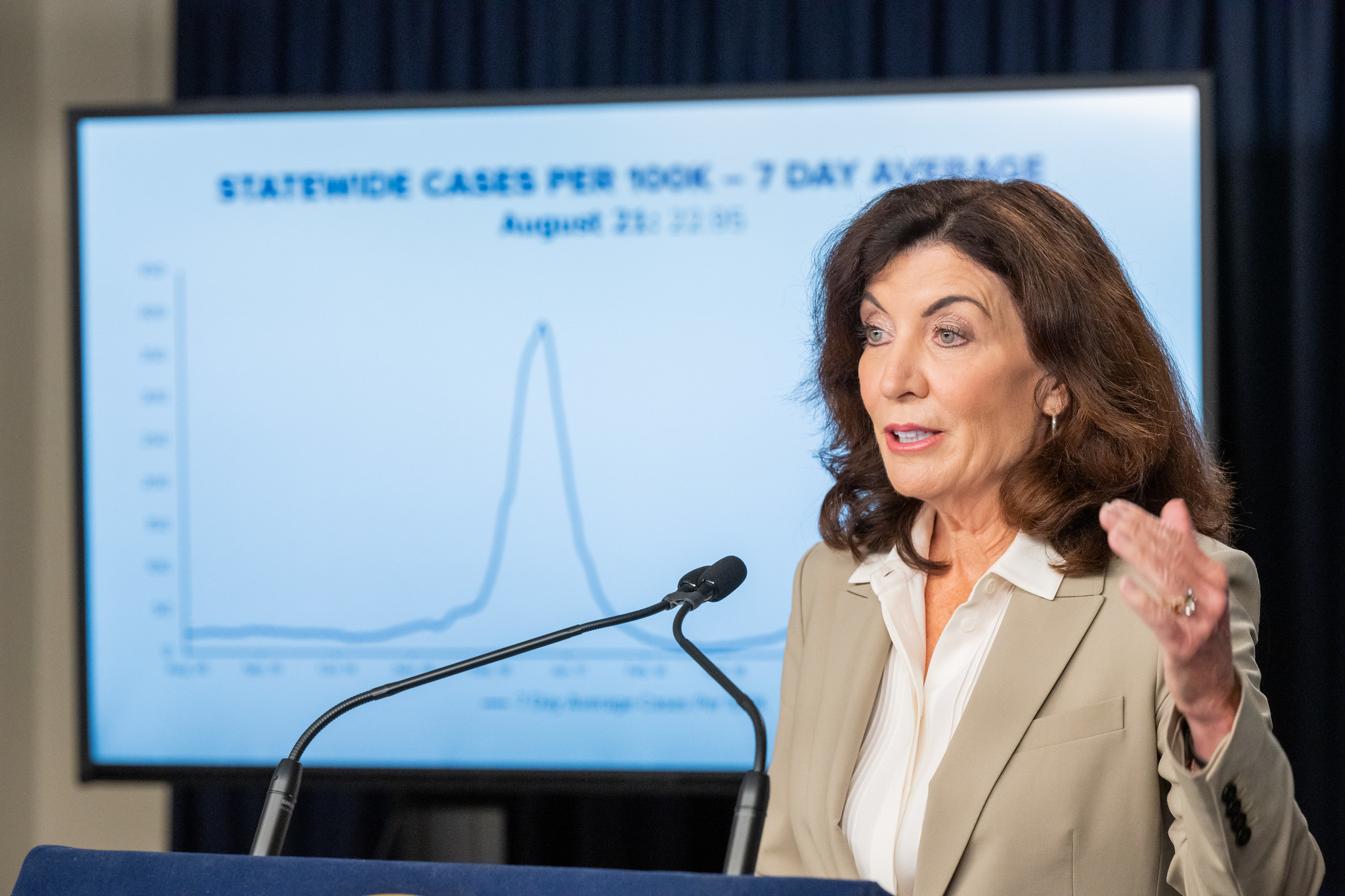
As more cases of poliovirus are detected in New York, Gov. Kathy Hochul issued an executive order on Friday declaring a state disaster emergency, increasing the availability of resources to protect New Yorkers against paralytic disease.
In hopes of bolstering the immunization drive, the E.O. immediately expands the network of polio vaccine administrators with the addition of EMS workers, midwives, and pharmacists and authorizes physicians and certified nurse practitioners to issue non-patient specific standing orders for polio vaccines.
The E.O. also requires health care providers to send polio immunization data to the New York State Department of Health through the New York State Immunization Information System, enabling state and local health departments to focus vaccination activities where they are needed most and to create another datapoint to understand the level of protection against polio by region.
“On polio, we simply cannot roll the dice,” said State Health Commissioner Mary Bassett. “If you or your child are unvaccinated or not up to date with vaccinations, the risk of paralytic disease is real. I urge New Yorkers to not accept any risk at all. Polio immunization is safe and effective – protecting nearly all people against disease who receive the recommended doses.
“Do not wait to vaccinate. If you are unsure of you or your families’ vaccination status, contact a health care provider, clinic, or local county health department to make sure you and your loved ones receive all recommended doses.”
Following the identification of a case of paralytic polio in an unvaccinated individual in Rockland County, the state Health Department launched wastewater surveillance — a tool to check for signs of the virus in sewage water in communities – as people infected with poliovirus shed virus in their stool.
Sequence analysis from the U.S. Centers for Disease Control and Prevention has found poliovirus in samples collected from Rockland County, Orange County, Sullivan County, New York City, and now, Nassau County. The sample collected in August from Nassau County has been genetically linked to the case of paralytic polio previously identified in Rockland County, further evidence of expanding community spread. All samples reported are samples of concern, meaning they are types of poliovirus that can cause paralysis in humans.
State officials are urging that all New Yorkers who are unvaccinated, including children by 2 months of age, those who are pregnant, and people who have not completed their polio vaccine series previously, should get immunized right away. Unvaccinated New Yorkers, or those not up to date with immunizations who live, work, go to school in, or visit Rockland County, Orange County, New York City, Sullivan County, and Nassau County are at the highest risk of contracting paralytic disease.
The inactivated polio vaccine (IPV), the only vaccine available in the United States, is safe, and contains no live virus. It protects 99 – 100 percent of people who get all recommended doses. In accordance with CDC, the polio immunization schedule by age is as follows:
- All children should get 4 doses of the polio vaccine. The first dose should be given at 6 weeks through 2 months of age, followed by one dose given at 4 months of age, 6 through 18 months old, and 4 through 6 years old.
- People starting the polio immunization series after 4 years of age who are unvaccinated or are unsure if they have been immunized should receive a total of 3 doses.
- Adults who have only had 1 or 2 doses of the polio vaccine in the past should get the remaining 1 or 2 doses – it does not matter how long it has been since the earlier doses.
- In addition, adults who live or work in the areas where poliovirus has been detected (Rockland County, Orange County, New York City, Sullivan County, and Nassau County) and don’t believe they are vaccinated should get vaccinated.
At this time, the following New Yorkers who have previously completed their polio vaccine series should receive one lifetime booster dose of IPV:
-
- Individuals who will or might have close contact with a person known or suspected to be infected with poliovirus or such person’s household members or other close contacts.
- Healthcare providers working in areas where poliovirus has been detected (Rockland County, Orange County, Sullivan County, New York City, or Nassau County) who might handle specimens that might contain polioviruses or who treat patients who might have polio (e.g., urgent care, emergency department, neurology, virology laboratory workers).
- Individuals with occupational exposure to wastewater can consider a booster.









